Half of Mamoru Hosoda’s Summer Wars is a family comedy/drama, while the other half is an interesting interpretation on the classic tale of artificial intelligence becoming dangerous. The previous three Hosoda films that I reviewed were primarily based in modern settings with fantasy elements, but Summer Wars is a bit more realistic, as it features an exaggerated version of modern social networking sites.
Almost everybody in the world of Summer Wars is connected to a social network known as Oz. In the real world, we have multiple sites for specific purposes such as Facebook, Twitter and Instagram, but Oz is a one stop shop for all things internet based, so much so that things like the keys to a water plant can be accessed through the program.
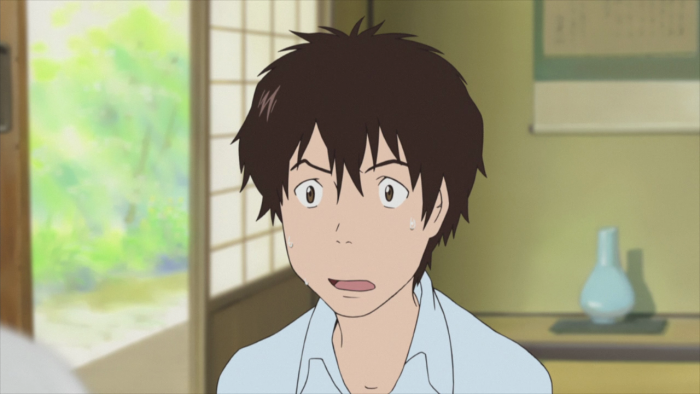
This brings us to our lead character, Kenji. In addition to being a math prodigy, Kenji is also a part time moderator for Oz, along with his best friend Takashi. Kenji is invited by his classmate Natsuki to spend a few days with her family, to which Kenji reluctantly agrees. As it turns out, Natsuki wanted Kenji to pretend to be her fiance so that she could impress her ill grandmother, Sakae.
Kenji is unabashedly a dork, but that’s also what makes him likeable. He’s also an interesting case of the main character playing a largely supportive role in the general plot. He doesn’t participate in any of the fights or games, but his book smarts are instrumental in saving the day in the end.
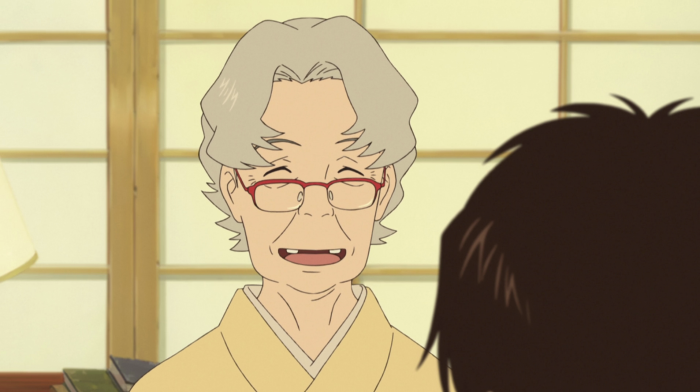
Natsuki has a huge family, so huge in fact that I can hardly remember all of their names. But names aside, the family’s interactions with each other make for some of the more heartwarming parts of the film. One scene in particular that stuck out to me is when Kenji expresses his gratitude towards Grandma Sakae for allowing him to spend time with her family.
He tells her that he was never able to enjoy those types of gatherings with his own family, a sentiment that I can personally relate to. Kenji’s bewilderment at the wildly different personalities that the family is composed of is something that I too have felt when being at other people’s family gatherings, and it was a really special moment seeing him accepted as one of their own.
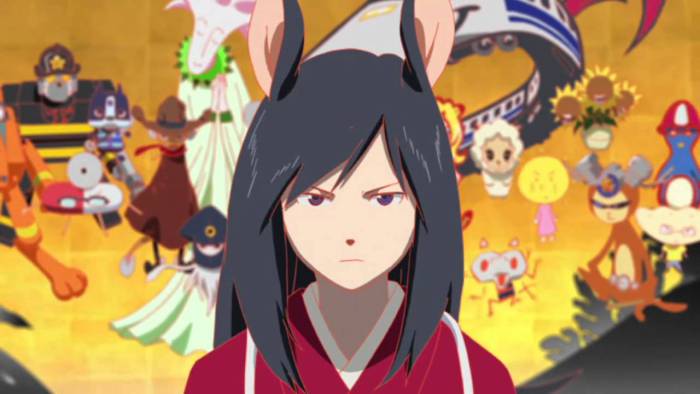
As for Natsuki herself, I found her to be somewhat of a mixed bag. She’s by no means a boring or uninteresting character, but I can’t really think of anything in particular that defines her. Her relationship with her estranged uncle definitely defines her character arc and development, but I wouldn’t say that it’s what ultimately makes her who she is.
This issue is largely compounded by the fact that she becomes a really important character during the film’s climax. While her participation wasn’t completely out of nowhere, I did find it to be largely unexpected. Having said that, this moment in particular was definitely her best one, and it was a really cool way to tie her to her family’s heritage.
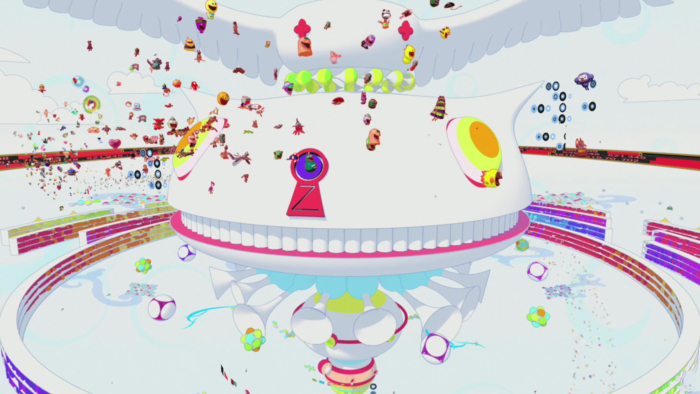
The most striking visual element of Summer Wars is definitely the design of Oz. The background is a very simple minimalistic white, but all of the different shops and custom avatars are made up of really bold and vibrant primary colors. Also, seeing the way that Love Machine, the film’s rogue a.i., morphs the network to their liking served for a nice contrast to Oz’s initial bright and cheerful aesthetic.
As is to be expected at this point, the film’s visuals as a whole are remarkable. Kenji and the res of the cast are all really expressive, while Oz is a nice blend of hand drawn and computer generated animation. Special mention to the handful of fights that take place in Oz, most notably between the characters King Kazma and Love Machine. Not only are these gorgeous to look at, but they are excellently choreographed.
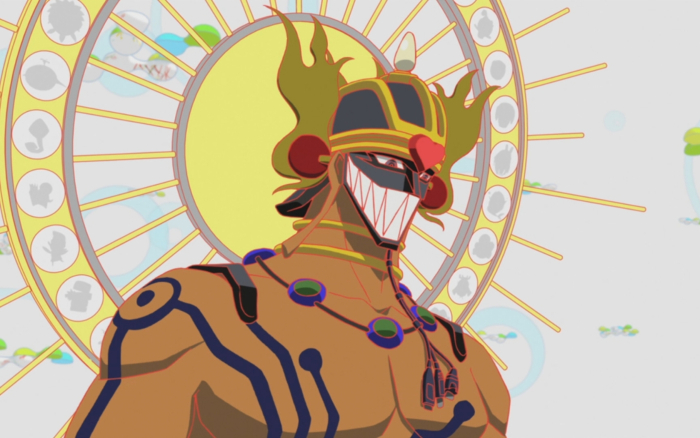
Oz itself is a really interesting concept, one that is even more relevant in 2017 than it was during Summer Wars’ 2009 release year. We share so much of our personal information on the internet, and Oz is a shining example of that path’s end result. What if our entire lives existed in a social networking site? Furthermore, what if that site went offline, or even worse, became infected with a program that views the entire system as a game?
Something I noticed about Summer Wars was the fact that it was very subtle in its messaging. It never tries to preach to its audience about the dangers of technology, even when a hostile program is attempting to crash a satellite into a nuclear reactor. The message is so subtle in fact that I honestly don’t believe Hosoda was attempting to deliver it. I wouldn’t be surprised if he simply just thought that it would be an interesting theme for storytelling.
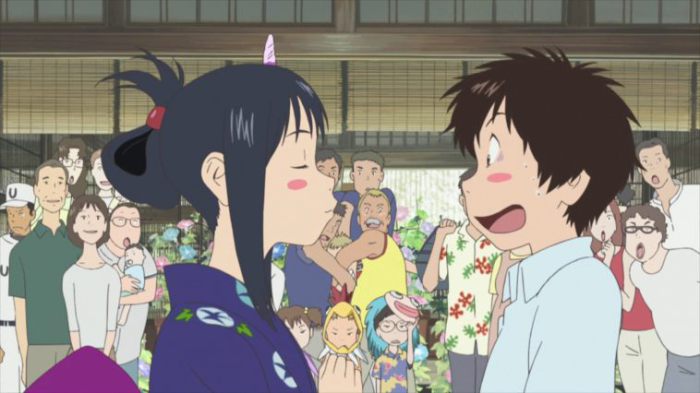
I can’t as easily tie Summer Wars to an overall theme as I can with The Girl Who Leapt Through Time, Wolf Children and The Boy And The Beast, but I didn’t find its storytelling to be any less potent than its sibling films. Everything from Kenji meeting Natsuki’s family, to Love Machine’s attack on Oz is woven into the plot in a way that doesn’t feel at all forced or contrived.
Summer Wars has a style all its own, but it is still distinctly a Mamoru Hosoda film. Strong characters and fresh, engaging plots are what I believe to be the hallmarks of any work by Hosoda, and in this regard, Summer Wars does not disappoint.
Advertisements Share this:




